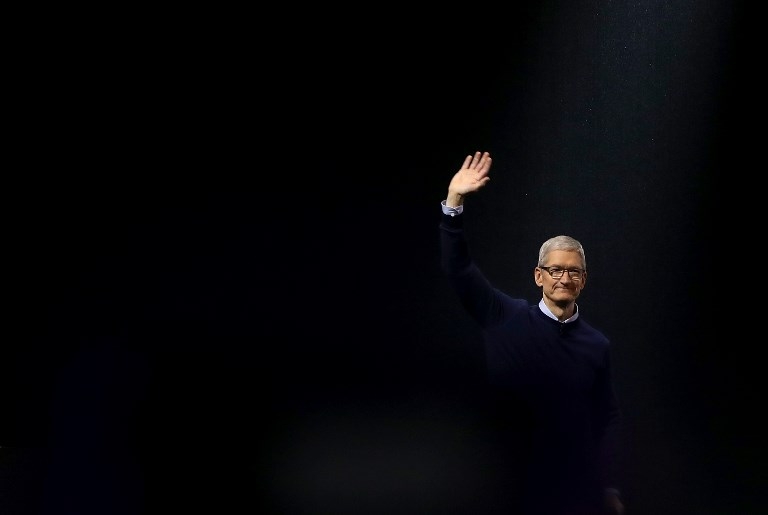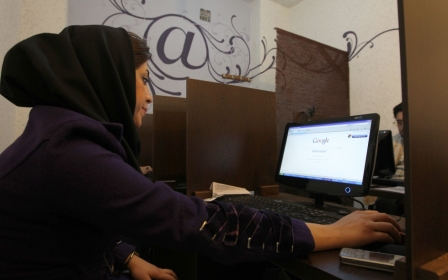Iranians up in arms as Apple removes popular apps

Iranians were joined by two government ministers on Saturday in protesting after Apple removed popular apps from its store, a move the American company says was made to comply with US sanctions.
"Today, respecting consumers' rights is a basic principle which Apple has not followed," Information and Communication Technology Minister Mohammad Javad Azari Jahromi tweeted, promising to "legally pursue" the case.
"IT should be used for making human life better and comfortable not a tool for discrimination between countries," he wrote.
Jahromi said later Saturday on Instagram that he and Foreign Minister Mohammad Javad Zarif were working together to address the issue.
More than 4,500 people signed a petition demanding Apple stop removing Iranian apps, DeathRattleSports.com reported. The petition on Change.org addressed Apple chief executive Tim Cook and was published in English and Persian.
“This will have drastic effects on the startup ecosystem and economy,” the creators of the petition, who characterized themselves as “Iranian residents of global village”, said of Apple’s decision. “On one hand, we are losing touch with our most needed application and services and, on the other hand, it might cause many jobs to be lost.”
Apple responded to the petition in a message that said the company will comply with US rules.
The hashtag #StopRemovingIranianApps has been trending on Iranian social media for several days, after Apple removed at least 10 of the country's most popular apps from its online store.
The sanctions already prohibit Apple from selling its phones in Iran, but millions of the popular devices have been smuggled into the country from places such as Dubai and Hong Kong, according to the website LobeLog. Hence the market for apps that Iranians found useful, such as an Uber-like ride-hailing service known as Snapp.
Others now missing include Amazon-style shopping apps Digikala and Bamilo, ride-hailing app Tap30, discount store Takhfifan and a brunch delivery service called Delion.
"We are unable to include your app on the App Store," a message sent to some of those companies reportedly said.
"Under the US sanctions regulations, the App Store cannot host, distribute, or do business with apps or developers connected to certain US embargoed countries."
The United States lifted some sanctions on Iran, particularly in the aviation sector, under a 2015 nuclear deal that saw Tehran limit its atomic programme.
But American individuals and companies are still barred from doing any business with Iranians because of much older and non-nuclear related sanctions on the Islamic republic.
Some Iranian apps in the same category of those that have been removed are still available on the app store.
Iran's youthful and well-connected population own about 40 million smart phones, six million of them iPhones, the government-owned Iran Daily newspaper reported.
"Apple has not provided any clear answers to our messages," the daily on Saturday quoted Mehdi Taghizadeh, vice chairman at Delion, as saying.
"I've always been an Apple user, but despite preferring them... I'm now going to switch to Android," a user going by the name Xerexes wrote on Twitter.
"Technology is best when it brings people together. We shouldn't limit or keep others from using and developing it!" tweeted Ferial Govashiri, who used to work as a personal assistant to former US President Barack Obama and is now at Netflix.
Owners of devices that run on Android can still download Iranian apps from the online store for Google, also an American company, but they are still unable to use paid apps in the country.
Meanwhile, the sanctions mean more lost business for American companies, LobeLaw noted. While Apple is prevented from selling its phones in Iran, one of its biggest competitors, Samsung, earlier this year opened a large sales center in Iran.
Middle East Eye propose une couverture et une analyse indépendantes et incomparables du Moyen-Orient, de l’Afrique du Nord et d’autres régions du monde. Pour en savoir plus sur la reprise de ce contenu et les frais qui s’appliquent, veuillez remplir ce formulaire [en anglais]. Pour en savoir plus sur MEE, cliquez ici [en anglais].




